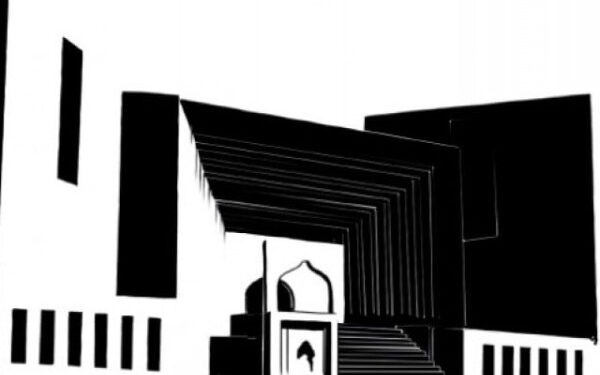ISLAMABAD: One of the biggest challenges facing the first constitutional bench of the Supreme Court, which is set to begin hearing cases from November 14, is to maintain the independence of the judiciary, especially without the influence of the executive or other state institutions.
Since March 2009, the apex court has played a key role in shaping the country’s politics. Before the passage of the 26th Constitutional Amendment, the judges of the Supreme Court faced no major challenge from external powers.
The Chief Justice of Pakistan, as the head of the institution, was setting the court’s agenda, which further weakened democracy in the country. In the past, the relationship between the Supreme Court and the security establishment was cordial.
There is no doubt that the major political parties, especially the PPP and the PML-N, were victims of the judicial activism of former Chief Justice Iftikhar Muhammad Chaudhry and former Chief Justice Mian Saqib Nisar. When these Chief Justices started using their discretionary powers to achieve desired outcomes, divisions began within the judiciary.
In the recent past, judges started turning against each other and helping external institutions. When the Supreme Court was divided into two camps during the tenure of former Chief Justice Umar Ata Bandial, the executive took advantage of this and regulated the discretionary powers of the Chief Justice through the Supreme Court Practice and Procedure Act 2023.
When Justice Qazi Faez Isa assumed the office of Chief Justice in September 2023, it was expected that the higher judiciary would now be united. However, this did not happen. During Justice Faez Isa’s tenure, even more serious differences emerged among the judges of the Supreme Court. Finally, Chief Justice Qazi Faez and his like-minded judges facilitated the government to bring the 26th Constitutional Amendment.
He overturned the previous Supreme Court decision that said that the vote of a dissenting legislator would not be counted under Article 63A of the Constitution. On this basis, the government was able to get the constitutional amendment passed.
Now the first constitutional bench is starting to hear constitutional cases at a time when the executive’s influence on the judiciary has increased. Lawyers say that the biggest challenge for the constitutional bench is to demonstrate its impartiality in high-profile cases. It is not yet clear whether the first hearing of the constitutional bench will be shown to the public through live streaming.
Abdul Moeez Jafri Advocate says that currently he expects that as per the directions of Chief Justice Yahya Afridi and the court’s decisions in the reference of Chief Justice Qazi Faez Isa, such important matters that require five constitutional judges will be broadcast live. The government wants the constitutional bench to hear petitions against the 26th Constitutional Amendment. It remains to be seen whether the constitutional bench will refer the matter to the Chief Justice to form a full court.

























